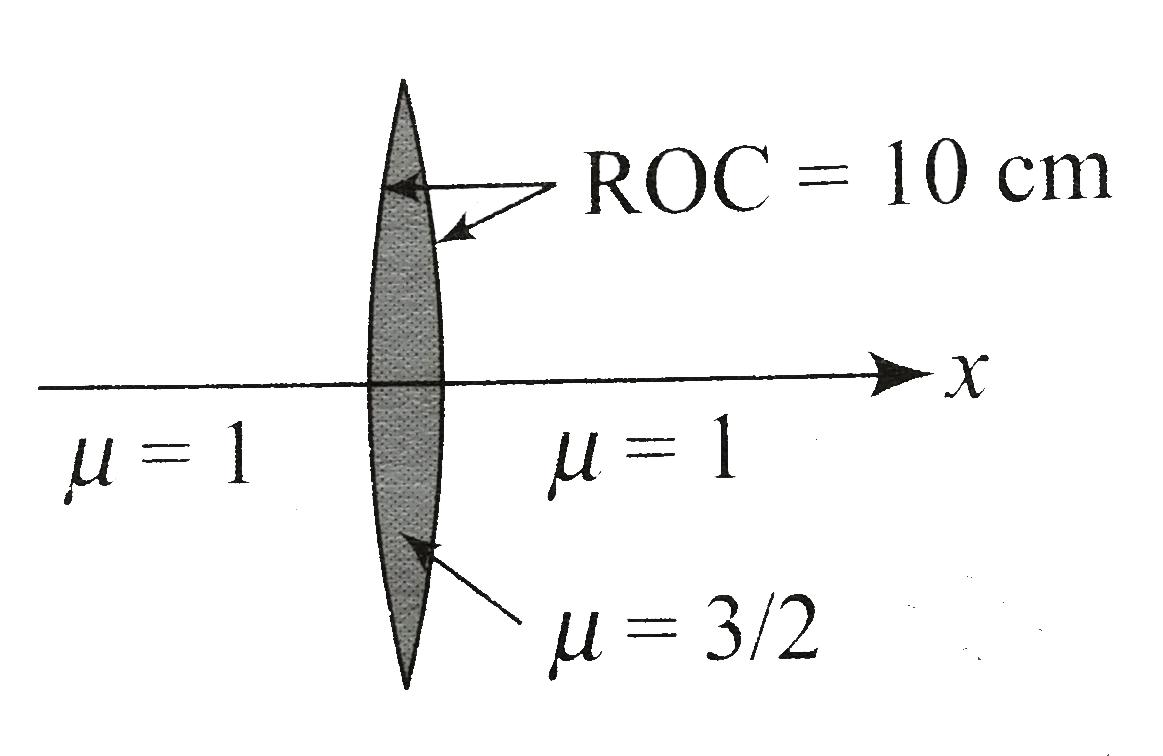Find the focal length of the lens shown in Fig . The radii of curvature of both the surfaces are equal to R.
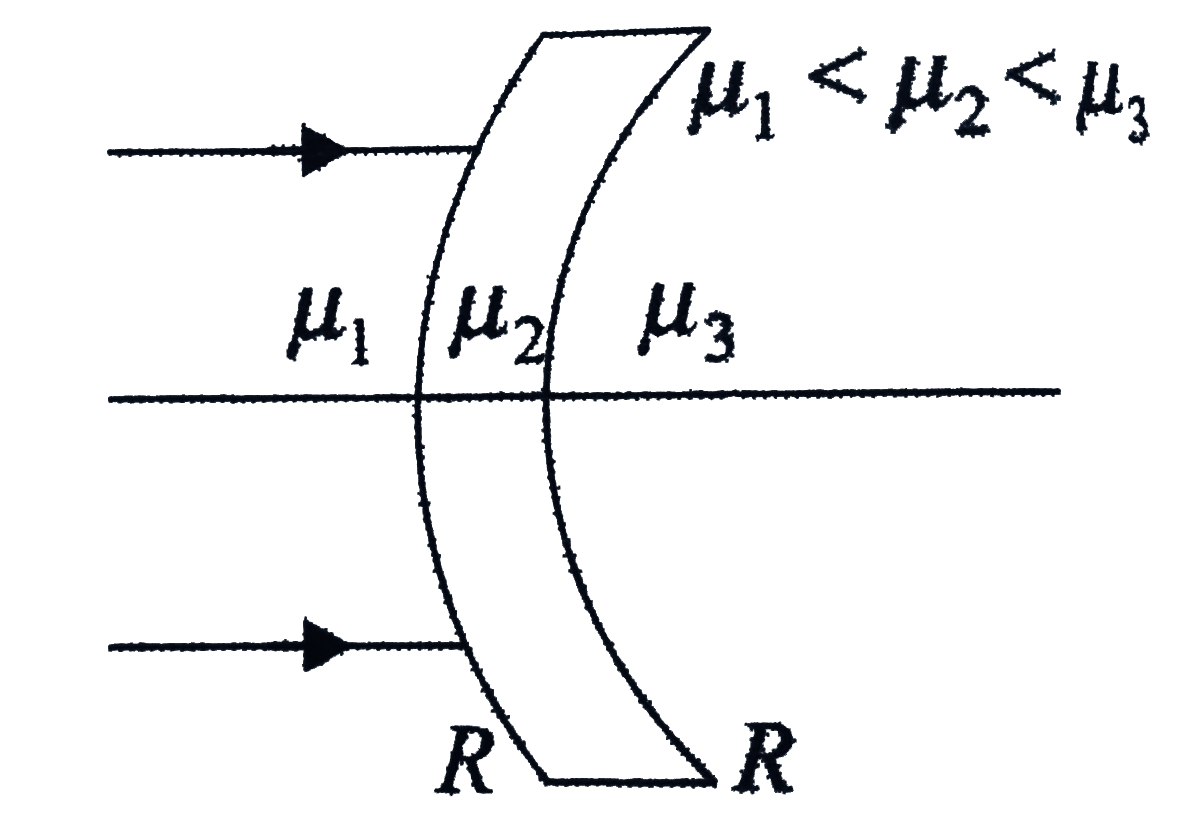
For an object placed at infinity, the image after first refraction will be formed at v1
∴μ2v1−μ1−∞=μ2−μ2+R (i)
The image second refraction will be found at v2
∴μ3v2−μ2v1=μ3−μ1+R (ii)
Adding (i) and (ii) μ3v2=μ3−μ1R
⇒v2=μ3Rμ3−μ1
Therefore, focal length will be μ3Rμ3−μ1 .

Topper's Solved these Questions
- GEOMETRICAL OPTICSBOOK - CENGAGE PHYSICSCHAPTER - GEOMETRICAL OPTICSEXERCISE - Solved Examples
15 Videos
- GEOMETRICAL OPTICSBOOK - CENGAGE PHYSICSCHAPTER - GEOMETRICAL OPTICSEXERCISE - Exercise1.1
14 Videos
- FRICTIONBOOK - CENGAGE PHYSICSCHAPTER - FRICTIONEXERCISE - QUESTION BANK
1 Videos
- GRAVITATIONBOOK - CENGAGE PHYSICSCHAPTER - GRAVITATIONEXERCISE - Question Bank
39 Videos
Similar Questions
Knowledge Check
The effective focal length of the lens combination shown in Fig. is −60cm. The radii of curvature of the curved surfaces of the plano-convex lenses are 12cm each and refractive index of the material of the lens is 1.5. The refractive index of the liquid is :
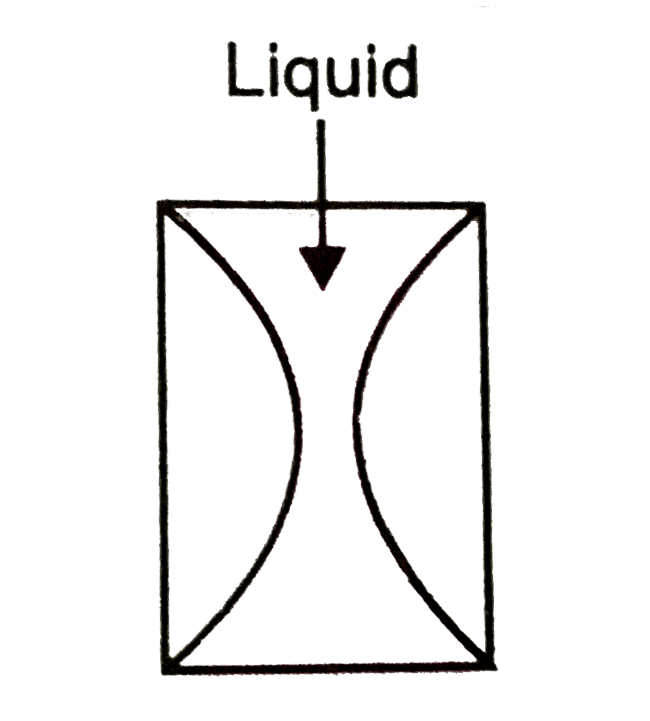 .A1.33B1.42C1.53D1.6
.A1.33B1.42C1.53D1.6The focal length of a double convex lens is equal to radius of curvature of either surface. The refractive index of its material is
A3/2B1C4/3Dnone of theseAssertion : The focal length of an equiconvex lens placed in air to radius of curvature of either face.
Reason : For an equiconvex lens radius of curvature of both the faces is same.AIf both assertion and reason are true and reason is the correct explanation of assertion.BIf both assertion and reason are true and reason is not the correct explanation of assertion.CIf assertion is true but reason is false.DIf both assertion and reason are false.
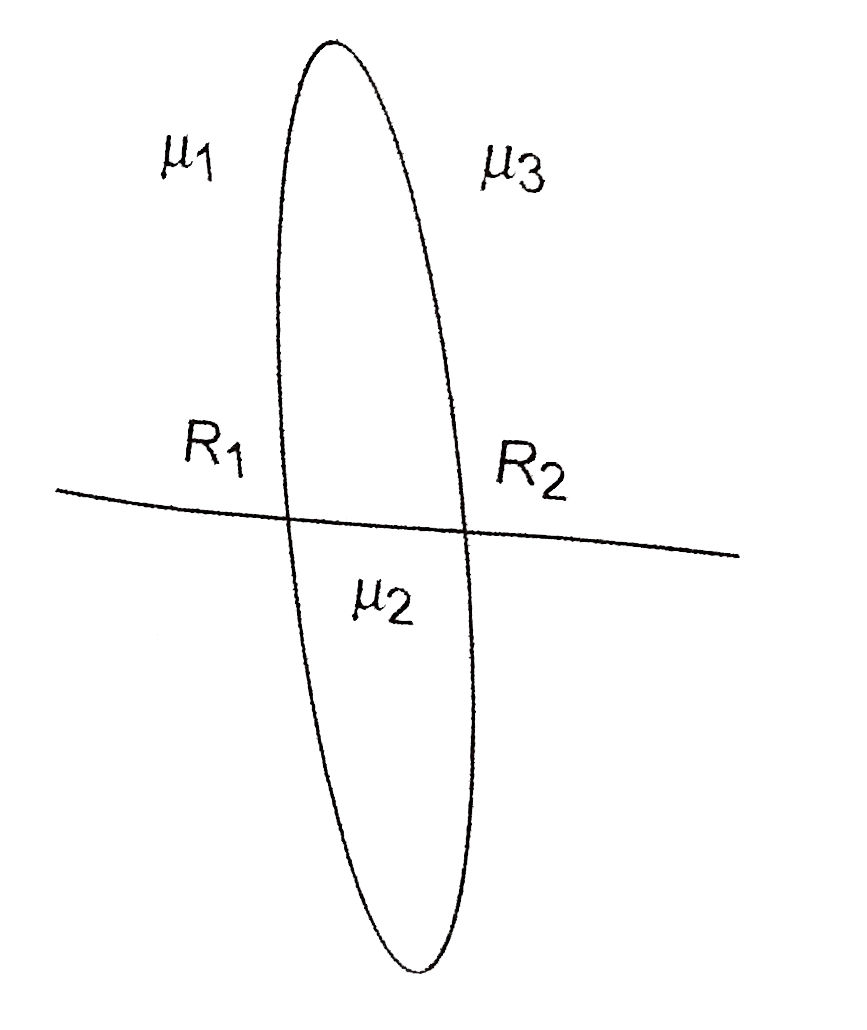
Find the focal length of the lens as shown in figure.
View SolutionFind the focal length fo the lens shown in the figure.
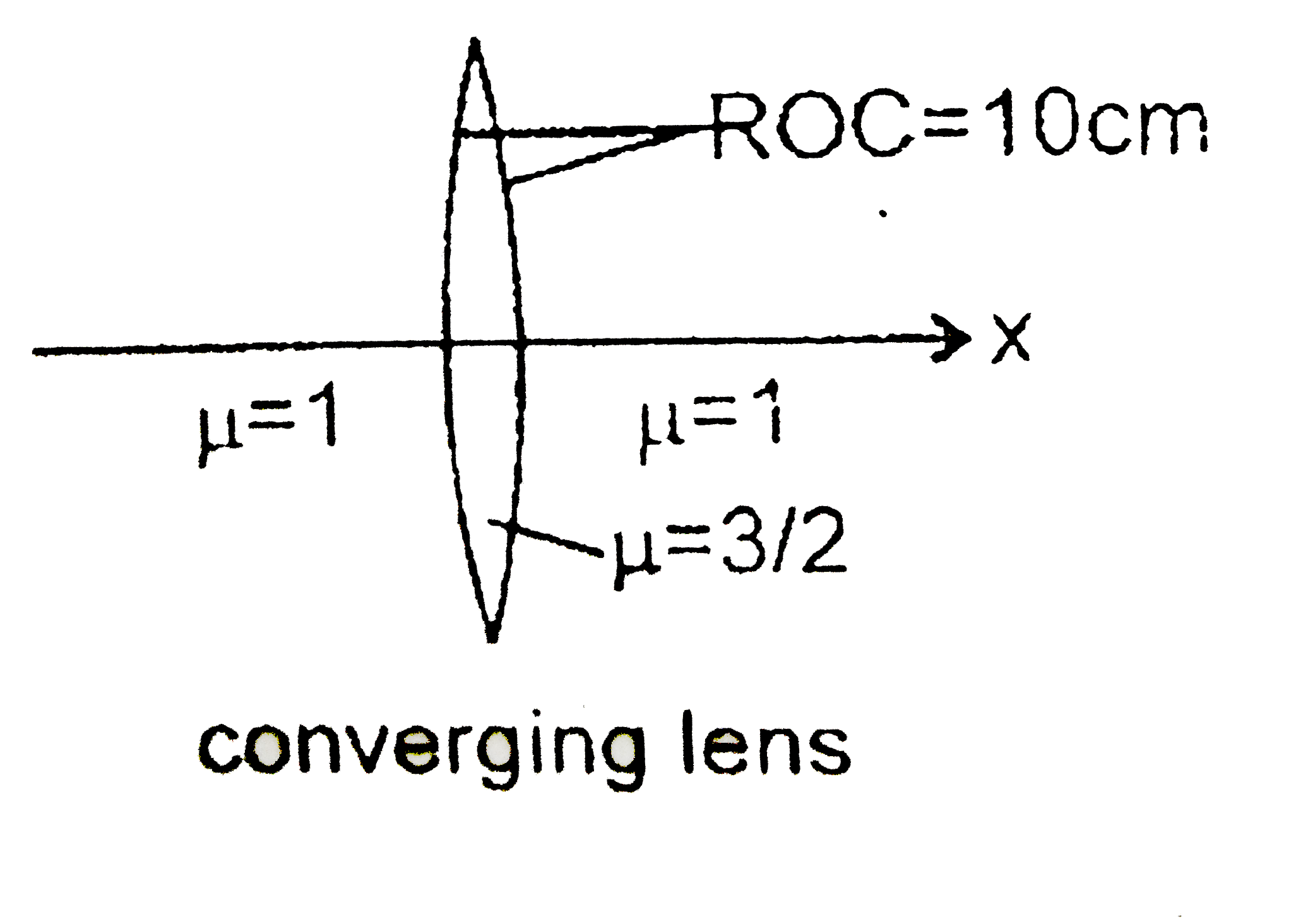
View SolutionIn the figure, light is incident on a thin lens as shown. The radius of curvature for both the surfaces is R. Determine the focal length of this system.
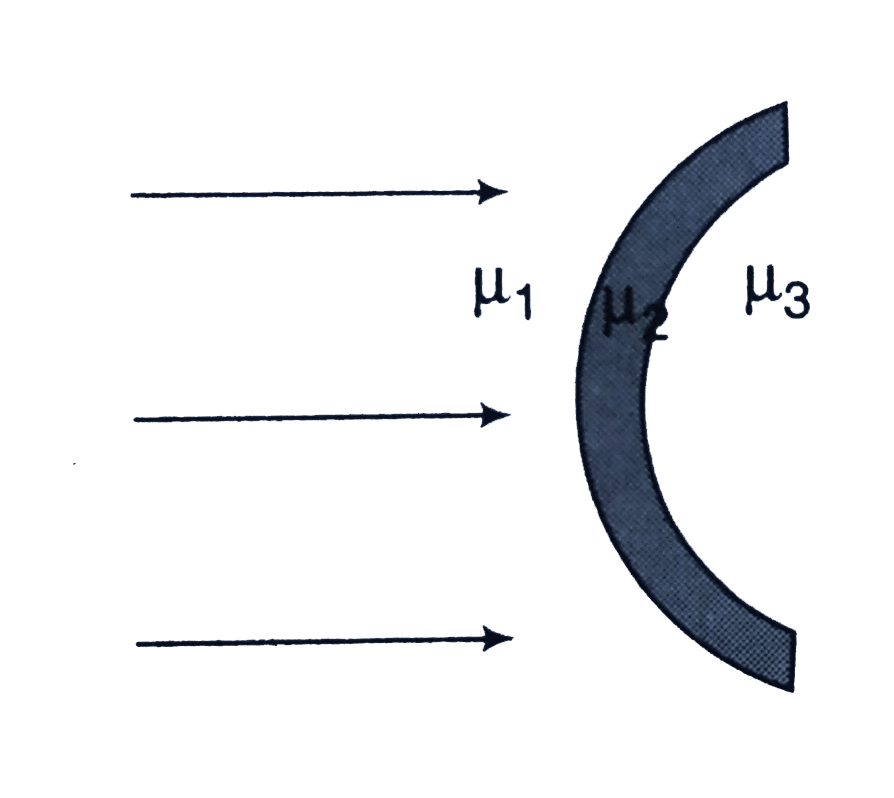
View SolutionFind the magnitude of the chromatic aberrations of a lens made of flint glass, if the radii of curvature of both its surfaces are 0.5 m.We define the chromatic aberration as the difference between the focal lengths for the red and the violet rays. Find the ratio of the chromatic aberration to the average focal length of the lens.
View SolutionUsing the following data, calculate refractive index of the material of convex lens. Radii of curvature of both the surfacea are 0.2m.Data recorded in the displacement//shift method to determine focal length of convex lens is shown here.
View Solution


